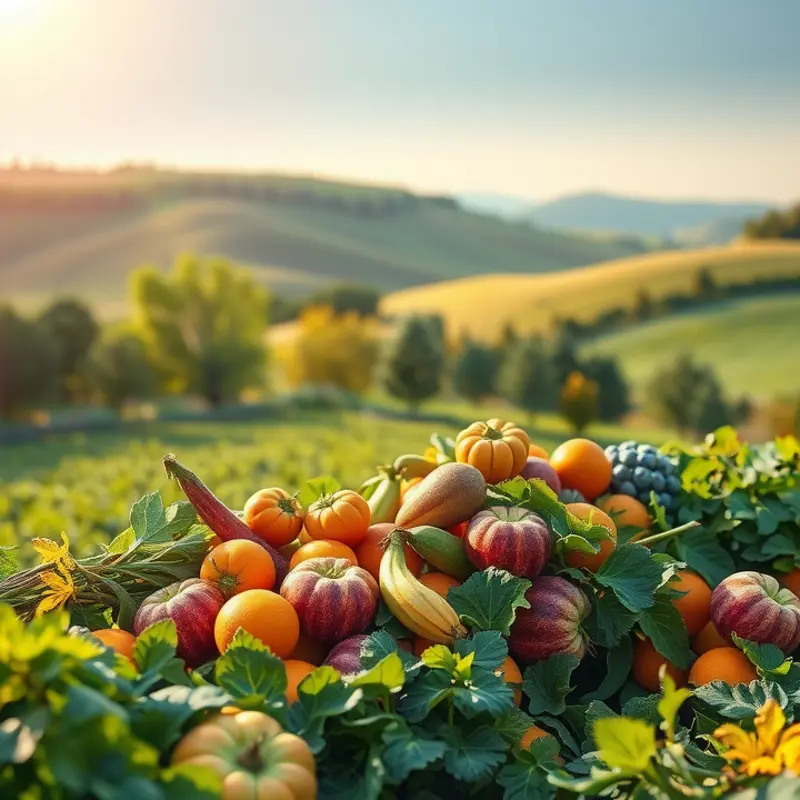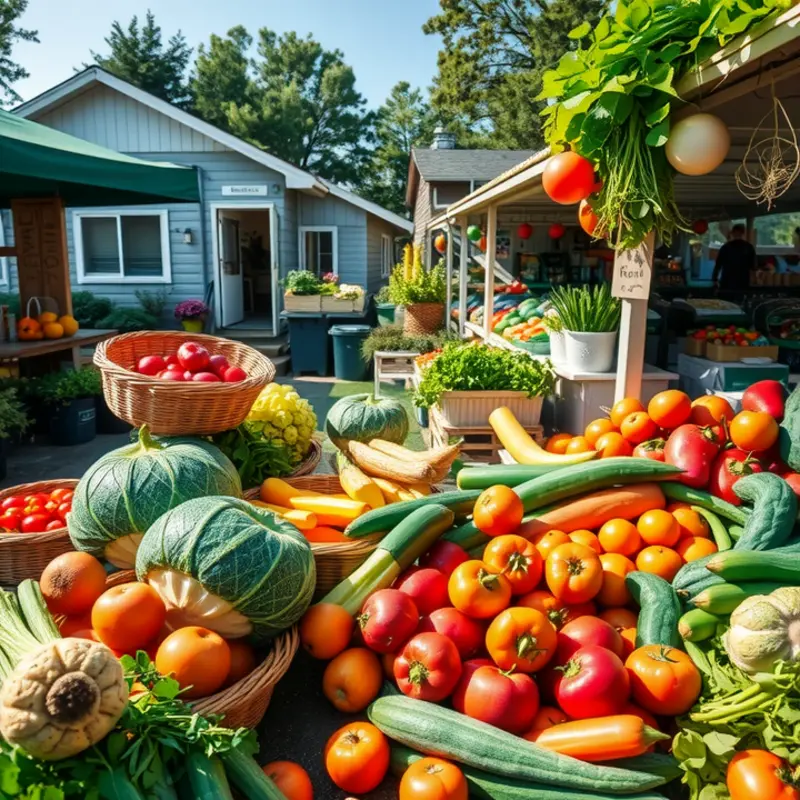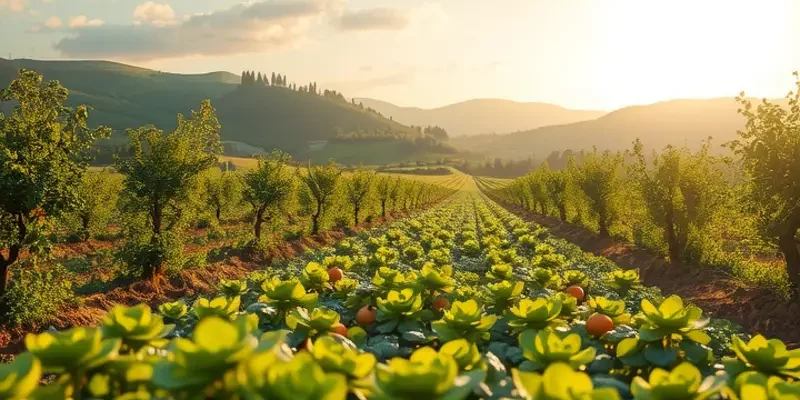Embracing an eco-friendly diet is not just a trend; it’s a vital step towards sustainability. With the food choices we make, we have the power to impact our environment positively. This guide is crafted for individuals who prioritize eco-conscious living and are keen on making dietary choices that not only nourish the body but also protect the planet. Discover practical adjustments and options that can seamlessly integrate into your lifestyle, leading to healthier habits for you and a healthier world for all.
Embracing Plant-Based Foods

Adopting a plant-based diet can be a transformative step towards better health and environmental stewardship. The benefits of consuming more fruits, vegetables, grains, and legumes extend beyond personal wellness to meaningful ecological gains. A diet rich in plants can reduce the risk of chronic diseases like heart disease, diabetes, and obesity. Additionally, it plays a significant role in lowering your carbon footprint due to the decreased demand for resource-intensive meat products.
There are various approaches to incorporating plant-based foods into your diet. Some individuals may embrace a vegetarian lifestyle, excluding all forms of meat while still consuming dairy and eggs. Others may opt for veganism, which avoids all animal-derived products. Flexitarian and pescatarian diets also offer plant-centric options that include occasional meat or fish.
Transitioning to a plant-based diet need not be overwhelming. Here are some tips to help ease the shift:
- Begin by incorporating one or two meatless days per week. It can reduce meat consumption without drastic changes.
- Experiment with plant-based substitutes for meat, such as tofu, tempeh, or legumes. These can be particularly useful in recipes traditionally centered around meat.
- Focus on colorful plates. Aiming for a vibrant array of fruits and vegetables can make meals more appealing and nutritionally diverse.
- Consider trying new grains like quinoa, bulgur, or farro to replace standard white rice or pasta.
Cutting back on meat and prioritizing plant sources can significantly alleviate environmental pressures. Meat production is resource-heavy, contributing to deforestation, water scarcity, and high greenhouse gas emissions. Conversely, plants require fewer resources and generate a lower environmental impact. This makes a strong case for the consumption of more sustainable foods.
Incorporating plant-based options into meal planning is both beneficial for the planet and key to maintaining a balanced diet. For those interested, understanding practical ways to batch plant-based ingredients can further simplify meal prep. Check this guide on practical ingredient batching for more tips.
Ultimately, embracing a plant-based diet isn’t just about what’s on your plate; it’s a step towards a healthier future for both people and the planet. Making mindful choices paves the way for a sustainable lifestyle that minimizes environmental impact without sacrificing nutritional quality.
Konnecting with Local Sustainable Sources

Connecting with local sources for your food is a foundational step towards eco-friendly eating. Choosing produce from nearby farmers’ markets and sustainable growers can substantially reduce transportation-related emissions associated with food miles. Shortening the supply chain benefits the environment by minimizing the carbon footprint inherent in transporting goods over long distances.
Sourcing food locally not only aids environmental efforts but also bolsters community economies. When you purchase directly from local farmers, you are ensuring the circulation of money within the community, supporting local jobs, and preserving farmland. This symbiotic relationship enriches the local economy while fostering resilience against global market fluctuations.
Local produce offers unparalleled freshness. Fruits and vegetables that are harvested at peak ripeness and sold soon after ensure better taste and nutritional quality. This freshness often translates to fewer preservatives and less processing. By indulging in seasonally available foods, you’ll be relying less on items that are grown out of season and imported, further reducing your ecological footprint.
Building relationships with local growers requires genuine engagement. Start by visiting farmers’ markets in your area. Speak with the producers, ask about their farming practices, and express your interest in sustainable agriculture. Many farmers are more than willing to share insights about their operations and can guide you on how to make the most environmentally-friendly purchases.
Social media and local community boards are great tools to explore available food sources near you. Online platforms often host local food forums where producers and consumers connect, share insights, and discuss sustainability. Participating in community-supported agriculture (CSA) programs is another excellent way to connect directly with local food networks. These programs often offer subscriptions to seasonal produce boxes, encouraging a deeper understanding and appreciation of the farming process.
Exploring local food avenues might initially seem daunting, but integrating these practices into your routine can be seamlessly done with planning. Practical ingredient batching is a strategy that complements shopping from local sources. By organizing your pantry based on local produce availability, you can reduce food waste and cooking inefficiencies.
Reinforcing your connection with local, sustainable sources supports a healthier planet and a more robust community. The steps might seem small, but the cumulative impact of these efforts leads to substantial ecological benefits. Relishing fresh and flavorful foods is merely a delightful perk of this conscious lifestyle choice.
Final words
The choices we make daily have the power to influence our planet’s future. By shifting towards a more plant-based diet and prioritizing local, sustainable food sources, we can contribute to a healthier environment. Each small adjustment you incorporate into your eating habits is a step towards fostering a greener planet. Embrace the journey of making eco-friendly dietary choices while nourishing your body and supporting your local community. Remember, you have the strength to drive this change, one meal at a time.








